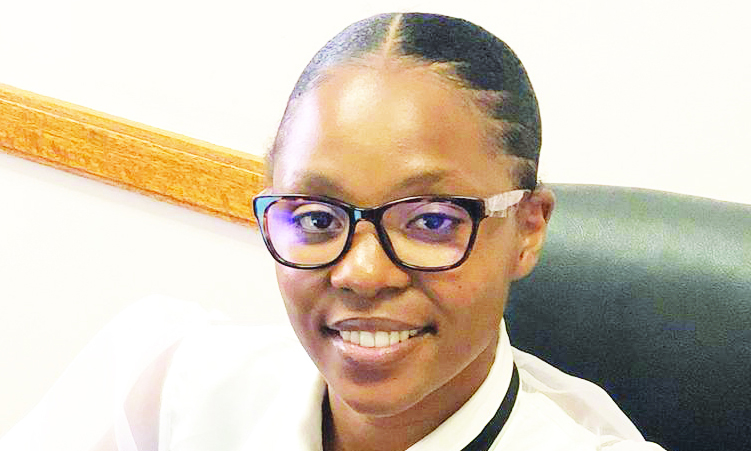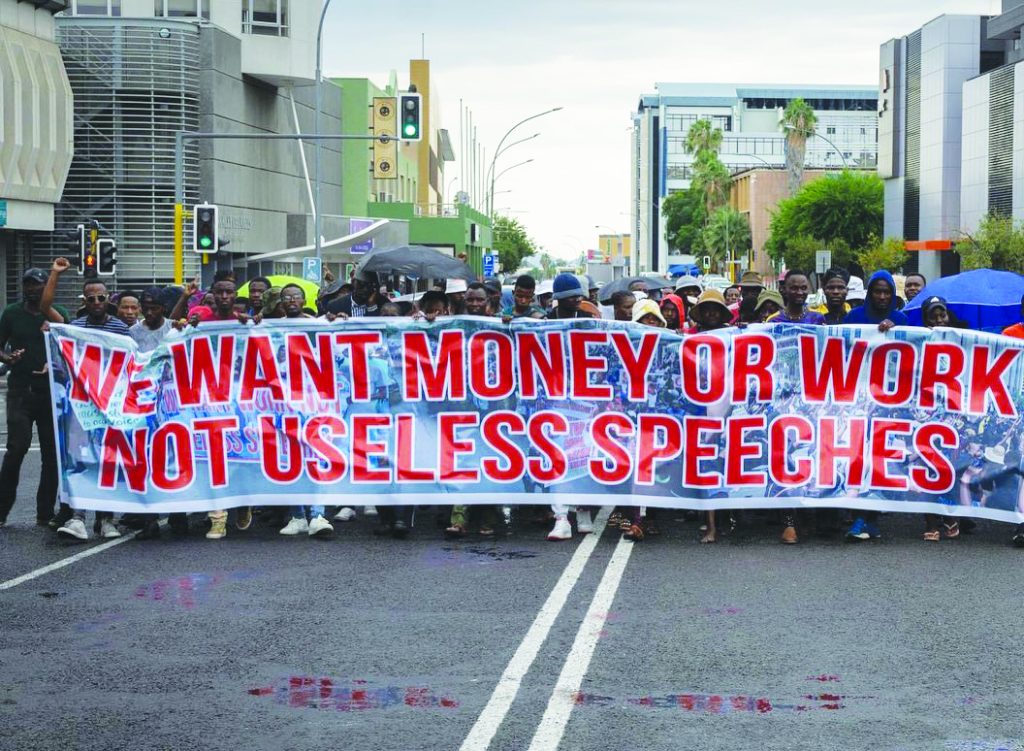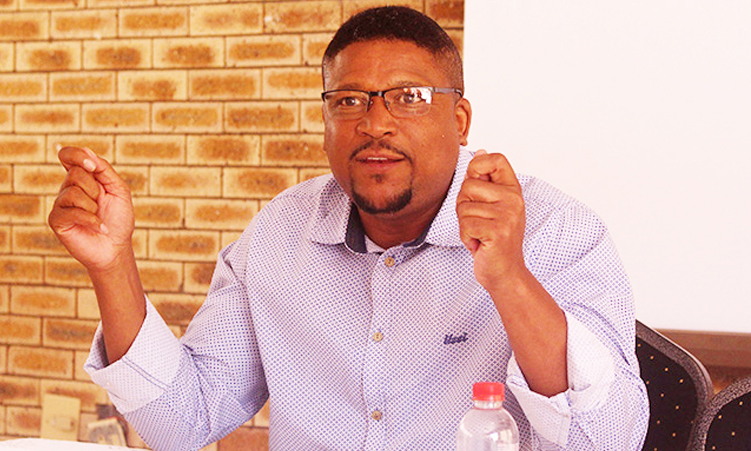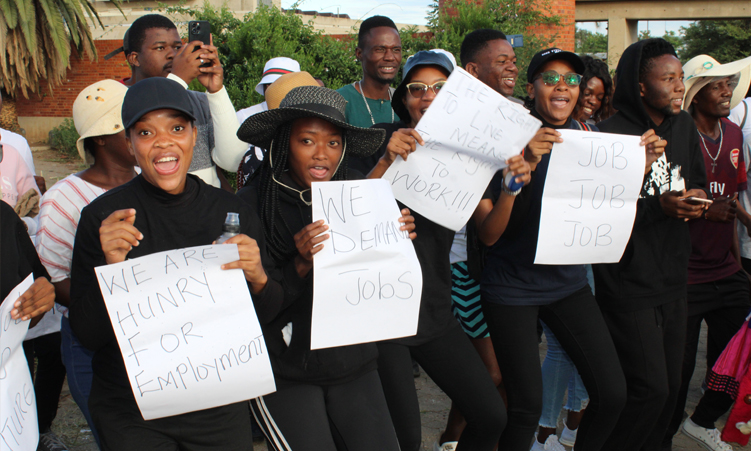… young people feel cheated by NSA omitting ‘most important’ statistic
“We are being denied the opportunity to assess the performance of the government. What happened to transparency?” questions Gift Kavera (30).
The unemployed graduate says she feels uninformed as she heads to the polls.
This follows the Namibia Statistics Agency (NSA) omitting the country’s employment figures during the announcement of the 2023 census results on Wednesday.
The NSA argued that this data should not form part of the 2023 census but rather of the labour force statistics.
However, in the 2011 census report, the NSA detailed the unemployment figures per region.
The country’s youth make up the majority of the voters, as well as the unemployment statistics.
“How do we make informed decisions when we do not have the facts in front of us? The decision to withhold such crucial information is concerning,” Kavera told The Namibian yesterday.
She said the unemployment rate has been fluctuating over the years, with 2012 seeing a great drop of 16.8%, but it picked up again in 2022 by 22%.
Cadeescha Hampira (29) yesterday said the omission is very disadvantageous.
“People are promising jobs with the new elections, but how would we know what we’re talking about in terms of jobs if there is no recent statistics,” she questioned.
Hampira highlighted that the previous labour statistics were pre-pandemic, before the huge job cuts.
“Imagine 2018 is prior to Covid. So many, many bad things have happened in the employment/job market during and post the pandemic,” Hampira said.
“I know that the unemployment rate is very high and that more people are graduating but the job market isn’t improving. There aren’t enough jobs,” she said.
Grade 12 pupil Pawa Mateus is unsure if voting will bring about any positive change.

“I am not sure if the elections will change anything. There are already too many unemployed youth. Some are ageing already,” he says.
Mateus dreams of going to university in Namibia and finding a job, but he does not believe his dreams will come true.
“I think I will attempt to study abroad and maybe try to find a job there. From what I am already observing at this stage of my life, I am not sure that I will be employed. I see a lot of graduates on the street,” he says.
Mateus is one of the 839 973 young voters heading to the polls in the dark about the country’s unemployment numbers.
Another young person is Adolf Jonas, who says the elections do not mean anything to him. Regardless, he says he will still vote.
“I am not sure what to think anymore. I studied for four years, but I cannot access work in the engineering field.” Jonas says.
Jonas further says it remains uncertain what will happen to young people in Namibia, even after the elections.
“Right now, I am running to apply for the police positions that were advertised this week. My dream was not to become a police officer but I will grab anything because I am not sure about the future anymore,” he adds.
Jolandi Christians (24) from Lüderitz told The Namibian her joblessness makes her feel ashamed.
“Imagine being unemployed for years, living with your parents or squatting,” she says.
This feeling further stems from the words the community throws at her, she adds.
“How worthless you feel because you cannot care for yourself, and some of us have children. You are always feeling ashamed,” says Christians.
The NSA provided a guesstimate of 33.7% for Namibia’s unemployment rate.
“So, you can maybe saying 100 minus 66 will be 34. Maybe you can guess, to say, the unemployment rate is 34%,” said NSA statistician general Alex Shimuafeni on Wednesday.

Landless People’s Movement Youth Command leader Duminga Ndala says it is unfortunate that the NSA has refused to release the results of the most important data in the country.
“This decision appears politically motivated, potentially aimed at discouraging young people from voting for an alternative party that addresses their realities and proposes solutions to the unemployment crisis,” says Ndala.
Lawmaker Utaara Mootu on Wednesday expressed her disappointment in the delayed unemployment report.
“Thus, sparking mistrust within the system as it allows the government to manipulate the narrative, leaving voters in the dark about the true state of our economy and silencing the voices of the unemployed,” she said.
Mootu questioned how lawmakers will be able to effectively produce policy alternatives towards the budget to address the growing unemployment crisis in the absence of these important statistics.
Social justice activist Nafimane Hamukoshi says the lack of timely unemployment statistics from the NSA puts young Namibians in a difficult position as they approach the elections.
“Without access to key data about youth unemployment and job opportunities, it’s hard for them to understand the real challenges they face and make informed choices about candidates and policies.”

Hamukoshi believes the gap highlights the need for transparency and accountability in the government.
“As Namibia heads to the polls, young voters should not only seek to understand their realities but also push for their voices to be heard, demanding that candidates prioritise things like social justice and economic empowerment in their platforms,” she adds.
Popular Democratic Movement Youth League secretary general Julia Nekwaya says it’s concerning that the release of census figures exclude critical unemployment statistics.
“In an era where youth unemployment is a pressing issue, the absence of updated statistics hinders informed decision-making,” she says.
The lack of essential data leaves young voters at a significant disadvantage, Nekwaya adds.
“Many young Namibians are undecided about which party to support, and these statistics could have clarified how each party’s manifesto addresses unemployment and economic opportunity,” she says.
Nekwaya believes young voters may struggle to align their choices with the realities they face.
“This situation underscores the importance of transparency and accessibility of data in a democratic society,” she says.
Nekwaya has urged the NSA to expedite the release of the unemployment statistics.
“Voters deserve comprehensive insights to assess party platforms effectively and advocate policies that will benefit their futures.”

Trade unionist Mahongora Kavihuha yesterday said the NSA has been drawn into the political parties’ [playground].
“And it’s very disturbing. And I don’t know how, or what they are going to do in order to build the trust of the Namibian people, if this sort of behaviour continues to persist,” he said.
He questioned why party politics and institutions are prioritised rather than the Namibian people.
“One could say that there was a serious architect [sic] that was at play and I think that needs to be corrected,” he alleged.
Economist Rowland Brown questions the integrity of the NSA after the omission of the unemployment statistics.
“As a result, this decision raises profound concerns about the NSA’s independence, transparency and integrity. To say the least, it is a deeply worrying indication of slipping standards and apparent political interference,” he says.
Brown emphasises that the role of a statistics agency is to collect and disseminate data and information, not to curate it for political or other purposes.
“It is certainly not to share data only if that data fits a particular political or popular narrative,” he adds.
Independent Patriots for Change (IPC) yesterday alleged that the NSA’s decision to omit unemployment statistics from the report is a calculated strategy to obscure the devastating reality facing Namibians.
“The NSA suppresses this information because they know it signifies the failings of the Swapo government to create an environment that can create jobs and put food on Namibian tables,” the IPC notes in a statement.
The IPC further expressed “deep” concern about the enormous suffering and vulnerability that these statistics signify.
“And our focus is primarily on creating jobs and income for Namibian households. Unlike the corrupt Swapo government, we will collect and disseminate data to show our progress in achieving this goal over the course of our first term in office,” notes IPC.
Stay informed with The Namibian – your source for credible journalism. Get in-depth reporting and opinions for
only N$85 a month. Invest in journalism, invest in democracy –
Subscribe Now!










